Every Thursday night in summer, Mike Scott and his wife, Judi Martin Scott, have about 60 people over for dinner on their patio in East Wenatchee, Washington, overlooking the Columbia River.
After going out to work for most of their lives, the Scotts enjoy having visitors at their Martin-Scott Winery tasting room, which is located in the basement of their home. It’s the place to be on a Thursday night for couples looking for a quiet romantic dinner.
Twenty years ago, when the Scotts bought the site where they would later build their winery and home, it had a 32-acre Red Delicious orchard that was probably 30 years old and 15 acres of undeveloped land. Mike had concerns about the future of the Red Delicious variety and the availability of labor to pick the apples. And the strainTop Redwas not the most productive. But it was an opportunity to own a nice piece property.
Believing there was not much future in the Red Delicious, they began to replant the orchard over a period of several years with Gala, Granny Smith, and Fuji apples and invested heavily in irrigation systems, trellises, and trees.
The Scotts both had full-time jobs besides the orchard. Judi, who has a degree in bacteriology and public health, worked as manager of the laboratory and then as a systems analyst at Central Washington Hospital in Wenatchee. Mike was general manager of Jones Fruit Company, based in Quincy.
Tree fruit
Mike spent his career in the fruit industry and has served as chair of both the Washington State Fruit Commission and the Washington Apple Commission.
After graduating with a bachelor’s degree in horticulture and a master’s degree in agricultural economics from Washington State University, he worked with WSU Extension alongside agent Dick Bartram in Wenatchee. After two years, he went to work for Stemilt Growers, where he was influenced by Tom Mathison’s progressive vision for the fruit industry.
In the early 1980s, he formed an orchard management company, and in about 1986, he went to work for the cooperative Chief Wenatchee as a field horticulturist. Realizing that most of the money in the tree fruit industry was being made in the packing end of the business, he decided to learn about that and ran the cooperative’s packing operation for a couple of years.
Grapes
In 1988, he was approached by Jack Jones, owner of a large diversified farming operation based in Quincy, who wanted him to run an apple-packing operation in Cashmere. Mike continued to work for Jones as he moved into grape production in the Columbia Basin, developing large tracts of land under contract with Stimson Lane winery. Scott said he benefitted greatly from his association with Jones, “a multifaceted agricultural entrepreneur,” and that’s where the idea of having his own winery took root.
The Scotts planted their first grapvines at their East Wenatchee property in 1997 with the idea that Judi might be able to apply her technical skills to winemaking. “She fell in love with the grape plants, so I multiplied that opportunity by planting some every year,” Mike said. “She would come over after work and prune the grapes.
“We would never have had the financial wheels to do our agricultural expansion without her having the commitment to working in the hospital and being good at it, and pursuing it to a very successful level,” he stressed.
They made their first two vintages in a controlled-atmosphere storage room belonging to Jack Jones before they built a winery on their property. They were living at Eagle Rock, north of Wenatchee, and before long realized that the only way they could continue to do their outside jobs and take care of the orchard/vineyard would be to live close by. So, in 2003 they built a house on the property. The following year, they converted the basement to a wine tasting room with a large patio.
Mike said they had opportunities to have a tasting room in downtown Wenatchee, or Leavenworth, or even Woodinville in western Washington, “But we always opt away because we like to keep it simple, and keep it at home.”
Cole’s Collage
Along with 20 acres of cherries and 23 acres of apples, the Scotts now have nine acres of grapes, which Mike has found are much easier to grow than tree fruits. Varieties include Muscat Canelli, Gewrtztraminer, Riesling, Pinot Gris, Chardonnay, Sauvignon Blanc, Malbec, Tempranillo, Merlot, Cabernet Sauvignon, Cabernet Franc, and Sauvignon Blanc.
In addition, they have a test block with a row each of Cinsault, Mourvdre, Barbera, Grenache, Aglianico, Refosco, Zinfandel, Primativo, and Montepulciano. Grapes from the different varieties in their test plot are field blended to produce a wine they call Cole’s Collage, named for their eldest grandson.
They process 23 tons of grapesenough to produce 1,000 cases of wineof which about 3.5 tons are purchased from other vineyards. About 80 percent of the wine is sold at the winery and the rest through local restaurants and stores.
Being primarily an estate winery was not their ultimate goal, Mike said. “Staying at home and tending our property is our goal, and that drives us to have grapes here.”
Most of the varieties he grows seem well suited to the location, which averages 3,600 degree days, and his Malbec, Tempranillo, Merlot, and Cabernet Franc are as good as any, he believes.
He thinks Wenatchee, Chelan, and the Wenatchee Valley can do a fine job with any of the white cultivars that are typically thought to have a bright acidity.
“I could not name a white grape that I don’t think we can do a worldwide competitive job with,” he said. “A little cooler temperature allows retention of the acidity and a balanced profile in the wine.”
But some varieties are better grown elsewhere. He purchases Sauvignon Blanc grapes from a vineyard at Wahluke Slope, Mattawa, and Cabernet Sauvignon grapes from Shaw Vineyards in Benton City in the Red Mountain American Viticulture Area.
“I think, consistently, the Red Mountain area is going to be a better place for Cabernet Sauvignon,” he said. “To develop the varietal character and the tannin structure would be difficult for us to doand we’ve proven it a number of times with our own Cabernet. We don’t like our Cabernet as well as Red Mountain’s, so the Cabernet we have ends up in blends with Merlot. I would not plant any more Cabernet Sauvignon here.”
While a big winery needs to produce consistent wines to satisfy consumers’ expectations, the Scotts feels freer to experiment.
“We want to work at being consistently different and unexpected,” Mike said. “We always want to surprise peoplein a positive way. You’re using your experience and sense of taste and smell to create a product that you think will have a more enticing or delectable outcome for people who consume it.”
A surprising number of people find their way to the winery. Some are directed there by the Wenatchee Chamber of Commerce or another winery, and some find it online. “You find people following their iPhone right into the door of the tasting room,” Mike said.
Now that they’ve retired from their outside jobs, they have the time to mingle with visitors and converse with people they’ve never met before.
“It’s been a kind of an outlet for us because my wife and I are pretty serious, but it’s given us a chance to lighten up a little bit to take the time to engage someone else’s minds and thoughts,” Mike said. “We weren’t into that, quite frankly. I always said ‘Hi’ to people on the street, but I would never stop to talk to them. I always had to keep going. We had bills to pay, trees to plant, and ball games to go to.”
Despite the state of the economy, there are still people with the time, money, and inclination to go wine tasting, Mike noted, and this has to do with enjoyment of life. Tourists come to eastern Washington because of the warm climate.
“We like to say when people come here that we’re not selling wine but we’re pouring sunshine,” he said.
“When you see sixty people enjoying a meal on the patio, and your wine bottles are on all the tables, it gives you almost a grandfatherly warmth of heart to see that enjoyment.
“From time to time, we’ll just walk off on the lawn a ways with a glass of wine and say, ‘Holy smokes, this is pretty cool.'”
———–
(This story has been modified to correct the spelling of Cole’s Collage.)

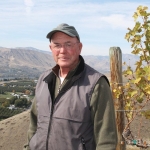
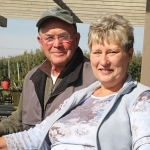
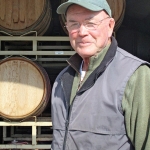

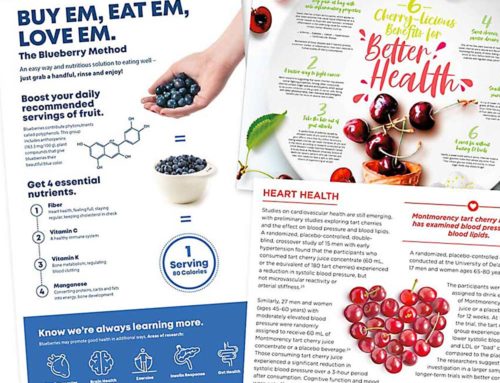
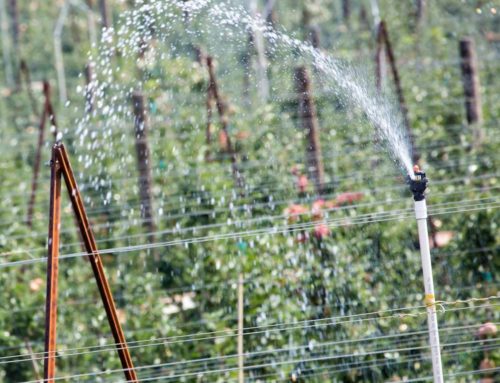
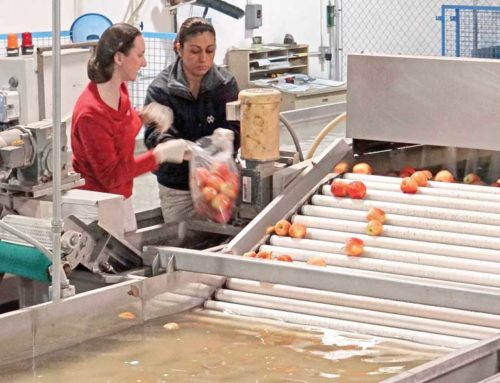

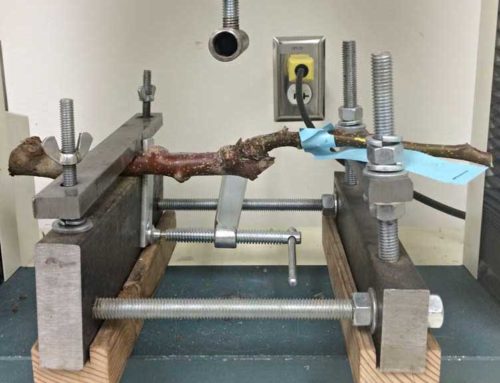
Leave A Comment